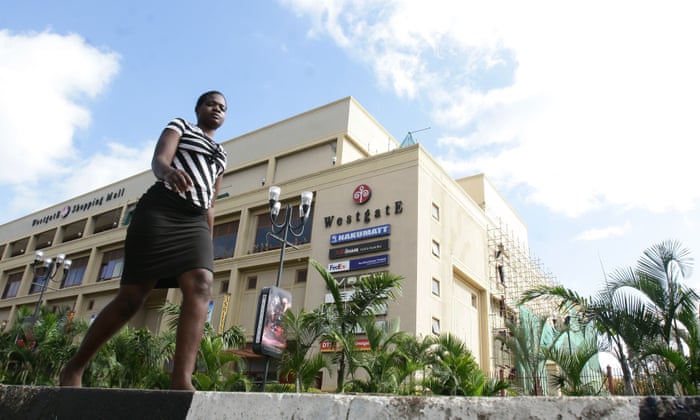In recent years, two contradictory narratives have emerged about Kenya. There is one that sees the east African country as a land of immense progress and promise. It is, some commentators have said, the “new front door” of Africa’s economy with a young, well-educated population and a growing middle class, coveted by a succession of global retailers. Its economy is based not just on commodities and agriculture but on a service industry with a well-developed human resource base and an increasingly important IT sector that has earned the country the label Africa’s Silicon Savanna.
The flipside is as grim as the first side is bright. For the past four years, since the Kenyan military crossed over into Somalia to battle the al-Qaida affiliated al-Shabaab group, the militants have in turn waged a low-grade insurgency in Kenya. Their methods have been brutal and caught the attention of the world. The siege on the Westgate mall in September 2013 left 67 dead and dealt a hammer blow to the vital tourism industry. More was to come, with an attack in April this year in which four young men stormed the Garissa University campus in the north-east of the country and went on an hours-long rampage that left 147 dead.
Which of these “two Kenyas” will triumph is a common topic of after-dinner conversation among the chattering classes. Kenya’s burgeoning class of tech entrepreneurs are not interested in waiting to discover the outcome, but have instead dived headlong into trying to solve the security crisis, in effect merging the two narratives.
Since Westgate, the security industry has grown in leaps and bounds. Private security firms now employ about 300,000 guards, according to industry insiders, making them the country’s biggest private sector employers. A booming trade has also emerged in closed-circuit television (CCTV) and access control systems.An attempt to establish a forensic lab by the government collapsed amid high-level corruption
Tech entrepreneurs like George Njoroge, 34, have made greater strides than most in the sector. Njoroge is used to spotting opportunities and seizing them. As a young college student, he lost all the data for his final project and could not find a firm that could recover it. He founded East African Data Handlers in 2006 and within a decade the firm grew into a Sh100 million (£60,000) company and established itself as the biggest data recovery company in the region
Njoroge has now ventured into the security solutions industry and is setting up a forensic laboratory, using privately raised funds. The absence of such a facility is frequently cited as one of the main drawbacks in efforts to professionalise the investigative capability of Kenyan security authorities. A government attempt to establish a forensic lab collapsed amid the high-level corruption that often hampers such large-scale security projects. Njoroge’s lab is expected to offer services to security agencies across the region.
Safaricom, the biggest telecommunication network in the region, meanwhile, was contracted by the government to lay out a national surveillance programme, including the installation of tamper-proof CCTV cameras in most major streets in Nairobi and Mombasa. While in many parts of the world such projects would trigger an outcry about privacy, in Kenya reaction has largely been muted, driven in part by shock over al-Shabaab’s tactics.
No matter how successful, no Kenyan would choose a burgeoning security industry over security itself. Instead we all hanker for the days when our unofficial slogan was hakuna matata – “no worries” – as popularised by the Disney film The Lion King.
The threat of al-Shabaab has made many Kenyans jittery, as photographer Najam Quraishy knows too well. The father of three dropped off his children at a school in a well-to-do suburb of Nairobi in mid-July, then stopped to take a few pictures of crows perched on a nearby tree within the school grounds. Another Kenyan posted pictures of Quraishy on Facebook, speculating he was a potential terrorist, – sparking a panic and sending the police on the hunt for an innocent photographer.
The tech industry in Kenya is doing a good job looking for innovative ways to tackle the menace of al-Shabaab but, ultimately, solutions beyond the remit of private-sector players are needed to curb the threat. Battling corruption within the police force (consistently voted the most corrupt institution in the country), improving border security (and the probity of immigration officers), boosting the capacity and training levels of anti-terror security forces, are all responsibilities of government.
Once they start doing their bit with as much creativity and commitment as the private sector, Kenya’s tech entrepreneurs can focus on innovations that improve the lives of ordinary citizens: ultimately, what we need are more mobile cash transfer solutions, and fewer closed-circuit cameras.

No comments:
Post a Comment